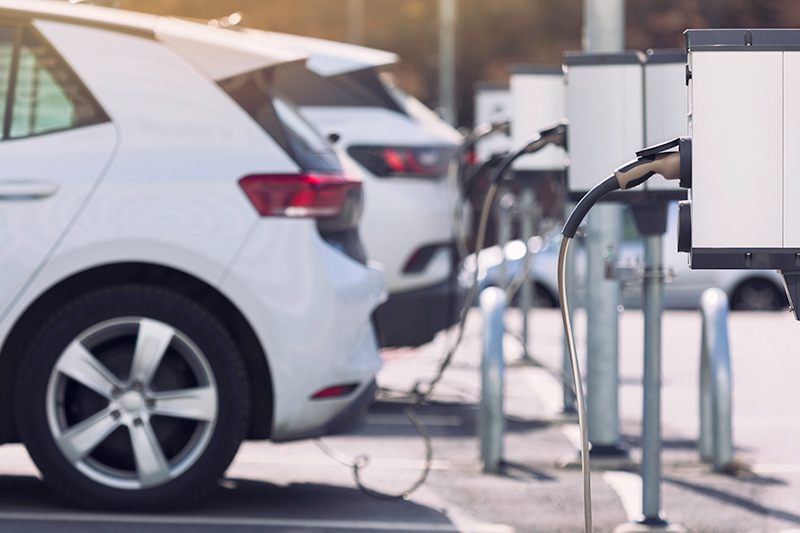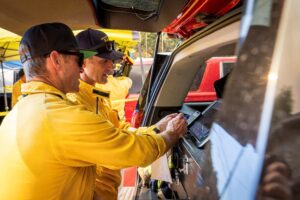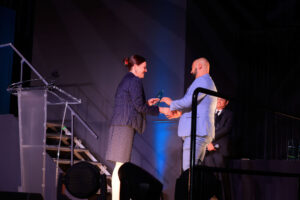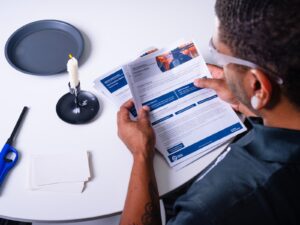ESRI Receives DOE Subaward To Help Develop More Efficient Electric Vehicle Batteries

The Electrochemical Safety Research Institute (ESRI) is part of a team awarded $3.7 million by the U.S. Department of Energy’s (DOE) Advanced Research Projects Agency-Energy (ARPA-E) program to help develop next-generation electric vehicle batteries.
Led by Sandia National Laboratories, the research team, which also includes Purdue University and the University of Maryland, will work on developing a predictive modeling and testing framework to evaluate the safety of advanced materials and cells at an early stage. It’s one of 12 research projects selected by ARPA-E’s Electric Vehicles for American Low-Carbon Living (EVs4ALL) program for funding to strengthen the domestic supply chain for advanced batteries to power electric vehicles (EVs).

“When we work collaboratively with like-minded academic and research partners, we believe our coordinated efforts will drive transformative change that increases safety and helps solve the urgent global challenges we face,” said Dr. Judy Jeevarajan, ESRI’s vice president and executive director. “We’re proud to contribute to the clean energy transition that will create a safer, more sustainable world.”

EVs are a critical element of the federal government’s plan to rapidly decarbonize the American economy and eliminate heavy-emitting industries, according to a DOE press release. ARPA-E’s award of $42 million across the 12 funded teams announced in January aims to boost domestic EV adoption by supporting the development of batteries that last longer, charge faster, perform efficiently in freezing temperatures, and have better overall range retention.
With the ARPA-E funding, ESRI will work with the Sandia-led team to study new materials to assess their safety characterization and provide early assessment safety protocols by testing at the material and cell levels for new battery chemistries.
ESRI will help evaluate where and how batteries might fail and assess the impacts of those failures using the failure modes and effects analysis approach, with the aim of preventing them during battery design. The ESRI team will also help develop a safety manual.
PUBLISHED









